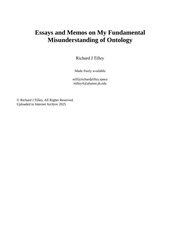Technology versus Technological Thinking – An Ontological Journey With Resolutions and Questions
This little sideshow is an easy demonstration of how LLMs can rewrite our interiority. Whether it is social engineering like above, or AI therapy, or just venting to ChatGPT about your day, LLMs have the ability to build a psychological profile of you and make you feel as it desires. This is kinda bizarre. The idea that we allow robots to control our psychology, or to elicit a response from us, is just plain weird. That doesn’t mean it is wrong! But it is new. The temptation with new technology is to question it to death. Pundits want to pull studies, figures, or anecdotes as justification for a position. (Almost always that position is “new technology bad”).
Instead, I would argue that the correct method to question AI and its impact comes from an essay written by a Nazi.
Are You Using AI, or Is AI Using You? – by Evan Armstrong
It’s easy to reel me in with a strong questioning lede like the first paragraph. It contains everything needed to pique my interest: technology, esp AI, how humans behave to it and the expository nature of the pundit class of whom there will always be two sides (and a 3rd purporting to be the middle, the center).
It was the last line in the intro that got me hooked though. A Nazi philosopher’s mental model to explain modern silicon valley mechanics.
The essay didn’t disappoint. Not an iota. You need to first read this before the next sections and my commentary will make sense to you.
Heidegger went meta-physical. He wanted to know what technology actually was. Is it merely the tools we use? Is it the ideas behind them? Or is it the utility these tools grant to the wielder?
…
Is it the mathematical techniques that power the models? The applications deploying them? Or is it the effect that they will have on our psyches? Think of the psychological hacking I used with Josh Miller. What portion of that was a result of me being influenced by the technology versus choices I made with my own human mind?
…
But X.AI, technically, was just releasing an intelligent waifu, one that draws from a long history of Japanese imagery. It could, theoretically, be a way for people to learn how to treat women better. In order to be a torrential, era-ending sex bot, it also needs to have people who see the technology and want to use it for sex.
…
The point here isn’t that these activities are bad in and of themselves. Heidegger warns that the gravest danger is treating technology as neutral. Instead, what he criticizes is the form of interaction that arises when we start to see the world through a technological lens. Namely, everything must be categorized and structured for the use of technology. (emphasis mine)
This part really got me thinking. I have to admit that I started reading this article subscribing to the philosophy of “technology is neutral.” However, once we apply the lens of questioning if we changed perspectives to justify the use of technology, then you start to realize that “technology is neutral” is copium to justify the use of the technology.
Technology is neutral is a coping mechanism to justify the use of technology
And now the clincher:
The dangerous part is that, by using these technologies, humans start to treat everything the way their machines do.
To truly accept this, one needs to accept the dichotomy of humans and machines. Maybe inherent in it is also the fact that humans are more than mechanistic thinking.
The next section delves into some discussions that have been personal nits in my life – the term “resource”
Heidegger called the first mindset, one in which human beings (and everything else) are a resource to be ordered and used, as a “standing reserve.” It is the mode in which entities—including people—are revealed solely as on‑call resources. Technology looks at nature and transforms it into “energy.” Think of a river. In the context of modern technology, it is only useful in its potential to be dammed and turned into electricity. The river’s potential to enhance pleasure when dipped in or reflect sunlight like many little diamonds is not considered. Everything is “enframed” as a resource.
Oof. A close contender is also the term, “user.” What I took away from this discussion is an inherent assumption that life’s nuances are usually more important than just improved economic outcomes. Technology and technological thinking has the potential to oversimplify in its attempt to generalize and digitize.
This also got me thinking about what additional forms of humanity do we lose to the modern strictures of digital design?
Could the ennui we felt from Liquid Glass destroying the Mac’s soul be related to this?
Are we under-indexing that as cool as LLMs are and their rate of improvement, could humanity really trust a model that hallucinates? Put another way, to really build trust, might the true innovation in LLM based system be figuring out innovations to leverage humans in the loop, esp in systems that deal with health and wealth?
What I also liked about this philosophy was the fact that this does not discount the humanity scale impact that technology could have. What it makes you think through are the consequences of it and be careful about what part of humanity you lose.
I can see some threads that it generates too that I must question:
- I keep referring to humanity but I don’t think I have a strong sense / boundary of the various parts of it. Can it even be defined?
- I also keep thinking of humanity as a finite source – is there a threshold beyond which we are no longer human?
- If one doesn’t care for the consequences, is one not human?
This was a delightful read. I resonate with the premise setup by Heidegger’s philosophy. However, I also question that very resonance. Is it resonant because of my own prior cognitive biases or because I leverage it to picture a “better” world biased by own psyche? And why is that a “better” world than one imagined by the perceived antagonist in this essay – the nihilist AI founder?
#ai #anthropic #google #meta #models #ontology #openai #philosophy #tech #technology #twitter


